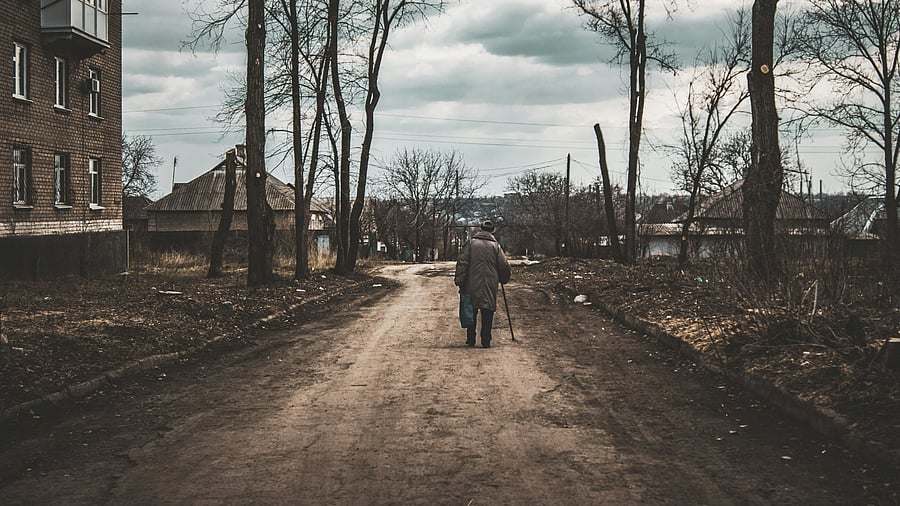
Image for representation.
Credit: Unsplash
Loneliness is becoming a silent epidemic, affecting people of all ages and backgrounds. But its effects aren’t the same for everyone. Men and women tend to experience loneliness differently, with distinct impacts on their mental and physical health.
For women, relationships often play a central role in their lives. They tend to form deeper emotional bonds, which can protect them from loneliness. However, when these bonds are lost — whether through a breakup, distance, or the death of a loved one — women often feel the emotional weight of loneliness more intensely. Men, on the other hand, are often raised to value independence and self-reliance.
This societal pressure can make it harder for men to admit they feel lonely or to reach out for help. While they might not talk about loneliness openly, its effects can be more damaging because of the tendency to keep it bottled up. Women experiencing loneliness are more likely to be aware of their feelings of sadness and emotional pain. They are more able to express vulnerability, cry or turn to friends to talk things through, which can help ease the pain over time.
But if these feelings persist, loneliness can spiral into chronic emotional distress. Men, in contrast, often express loneliness in less obvious ways. They may become irritable, and angry, withdraw from social activities, or turn to unhealthy coping mechanisms such as drinking, smoking, or overworking. Unfortunately, this behaviour can alienate others and since men are also less likely to seek help, their loneliness often goes unnoticed until it becomes a serious issue.
The hidden toll
The effects of loneliness also take a toll on the body — it can lead to chronic stress, which is linked to higher blood pressure, heart problems, and even autoimmune diseases. People who feel isolated may also struggle with sleep, which only worsens their health. For men, the physical risks are even more pronounced. Studies show that loneliness increases the chances of heart disease and early death in men. A lack of strong social ties often means men are less likely to adopt healthy habits, such as exercising regularly or eating well. Over time, this compounds the damage loneliness can do.
Men are more vulnerable
One major factor is how men and women build relationships. Women are often better at forming close-knit, emotionally supportive networks. Conversely, men may rely on a smaller number of connections — such as their spouse or work colleagues. When these connections are lost, men are left without the safety net that broader friendships provide.
Older men are particularly at risk. Retirement, widowhood, or losing close friends can leave them feeling isolated. Unlike women, who are more likely to join social groups or community activities, men often struggle to rebuild their social lives later in life.
Social media & the loneliness trap
Both men and women are affected by the rise of social media, but sometimes in different ways. Women may feel inadequate when comparing themselves to others’ seemingly perfect lives online, deepening feelings of loneliness. Meanwhile, men might use technology to escape, turning to gaming or superficial online interactions instead of real-world relationships. While social media can offer connection, it often lacks the depth of face-to-face interactions. This can leave both men and women feeling more isolated than ever.
The role of childhood
Loneliness often stems from early life experiences. Childhood neglect or rejection can make it harder to form trusting relationships as adults. For women, these experiences may lead to anxiety or a fear of abandonment. Men, however, might react by avoiding closeness altogether, leading to superficial or distant relationships.
Loneliness doesn’t discriminate — it affects everyone. But its impact on men and women is shaped by biological, social, and cultural factors. Women may feel it more emotionally, while men often bear its physical toll in silence. By understanding these differences and fostering connections, we can combat loneliness and its harmful effects, helping both men and women lead healthier, happier lives.
How to tackle loneliness
Addressing loneliness starts with recognising its unique effects on men and women. Here are some ways to help:
Encourage emotional openness: Know that vulnerability is a strength, not a weakness. Therapy, support groups, or even open conversations with friends can help break the cycle of silence.
Support during transitions: Life changes like motherhood, divorce, or caregiving can make women feel isolated. Community programmes or peer support groups can help them rebuild connections.
Foster real-life connections: Both men and women benefit from shared activities like group exercise, hobbies, or volunteering. These interactions build deeper relationships and reduce feelings of isolation.
Use technology wisely: While social media can connect people, it’s essential to balance online interactions with in-person ones. This helps create meaningful connections.
Encourage healthy habits: Regular exercise, a balanced diet, and good sleep can counteract some of the physical effects of loneliness.
(Dr Shyam Bhat is American Board Certified in Internal Medicine, Psychiatry & Psychosomatic medicine while Dr Vandana Shetty is an integrative psychiatrist and psychotherapist. They have written a chapter on Building Healthy Relationships in the book Lifestyle As Medicine: The Science of Healthy Living, which is available for free download online or for purchase on Amazon India.)